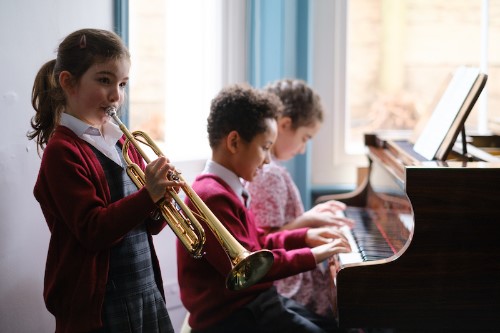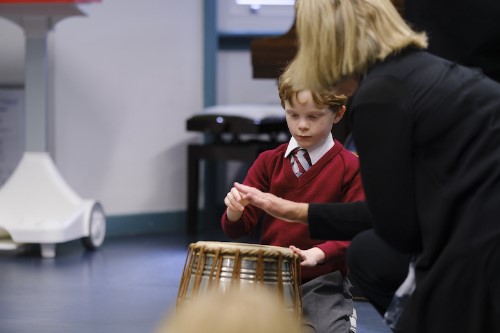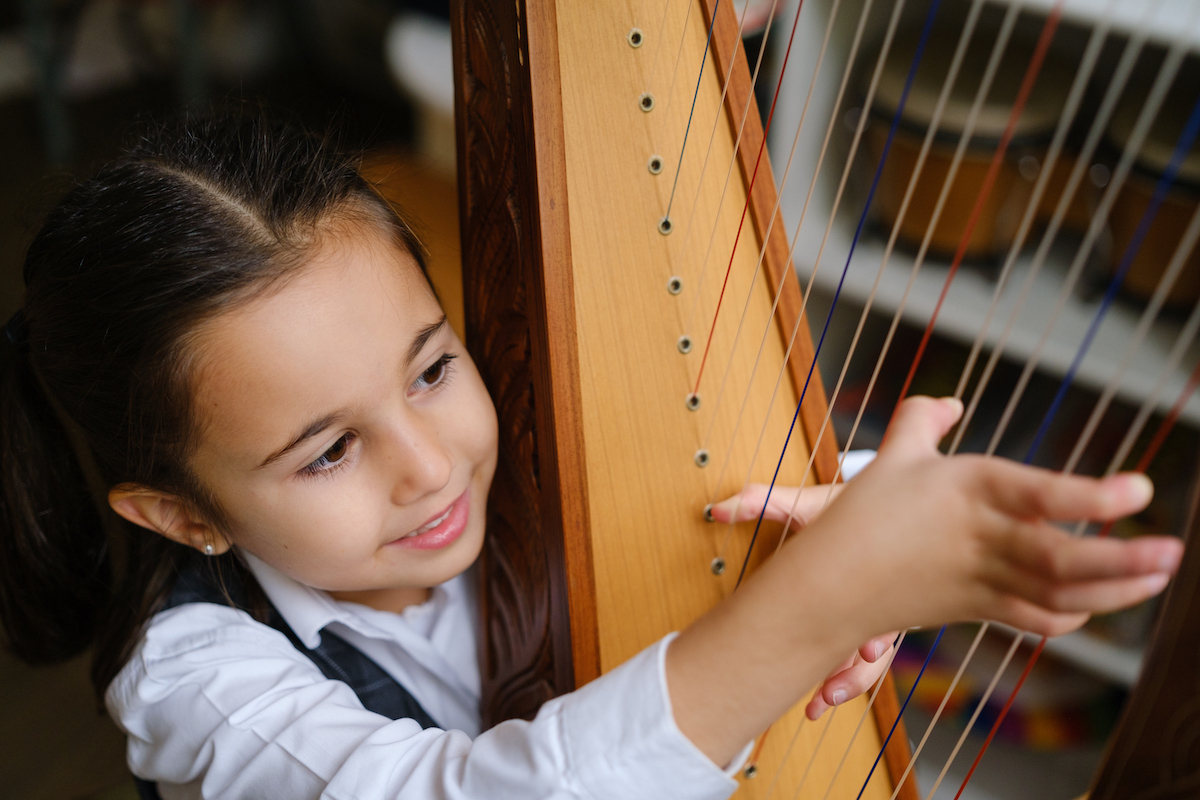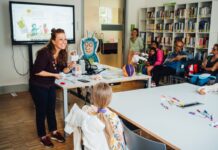Is your child the next Lang Lang or Vanessa-Mae?
Music is a huge part of the rich fabric of school life at Redcliffe Gardens School in Chelsea and specialist Music teaching starts in the Nursery. As pupils progress up the school, they all learn instruments in class: Year 3: ocarina; Year 4: recorder; Year 5: violin; Year 6: ukulele, and experience a wide selection of musical styles. Singing is central to the musical life of the school and every child sings in a school choir.
Once they are in Year 2, all boys and girls are encouraged to learn an instrument and they can choose from a wide range taught at Redcliffe by seven specialist instrumental teachers including the violin, viola, cello, guitar, harp, flute, clarinet, saxophone, recorder, trumpet, cornet, French horn, tuba, piano, and singing. As soon as pupils can hold a bow, blow into a mouthpiece, or pick out a note they can also join the school orchestra with parts specially adapted to suit their level.

With so much choice, parents sometimes find it difficult to help their children decide what instrument to learn and then to support them practising at home. Learning an instrument and academic success have often been linked but there are lots of other benefits too. Redcliffe’s Head of Music, Ms Burnett, has a few helpful tips to share with Kensington Mums:
- When choosing an instrument be guided by your child. If they have enthusiasm and passion for a particular instrument, they are more likely to practise and to make quicker progress.
- Try to encourage your child to consider a range of different instruments to see what sort of sound they like best and what instrument they like the look of. We have regular visits from the music students at Godolphin and Latymer School – part of our Foundation – who bring along their instruments to play to our students and run musical workshops.
- Think about what style of music your child likes. If they really love the sound of jazz then the clarinet, saxophone, or trumpet might be a good option; something loud? Then consider a brass instrument; or if rhythm is more their thing, then consider the drums.
- Some instruments like the tuba, harp and cello are trickier to hold and carry. Most of these instruments – including the violin – come in smaller sizes but you’ll need to invest in properly fitted instruments as your child grows.
- Brass and woodwind beginners will take some time to develop the necessary embouchure (mouth shape and strength) for their instruments – they will also need enough puff!
- The piano is a very good foundation instrument but it’s not necessarily the easiest one to start on. Quite quickly two hands need to do different things simultaneously and there are two different staves to learn how to read.
- If a child is finding it tricky to tune into a note, they might also struggle with learning a stringed instrument where they have to find the notes themselves. In this case, something like a woodwind or brass instrument might be easier to play.
- Buying an instrument and paying for music lessons is a significant investment. Think about renting an instrument before you buy so that your child can easily change instruments if it doesn’t work out.
- Reward your child for practising with a star chart or a treat and lots of praise and encouragement. Learning an instrument involves self-discipline and motivation and teaches many other skills such as concentration, perseverance, dexterity, expression, and self-confidence. Once children have grasped the basics of playing an instrument, they are likely to really enjoy playing it.
- Music helps children understand maths. When children learn note lengths, bar lines and rhythm, they are also learning ratios, fractions and proportions. Music can be a great way of learning maths in an artistic way!
- Encourage your child to perform in front of others as it builds confidence and makes them feel proud of their achievements. Never comment on their mistakes; only give encouragement.
- Children at Redcliffe are encouraged to take external instrumental ABRSM and Trinity Guildhall examinations and aural practice sessions are given by the Head of Music. Working towards these exams provides a great sense of purpose and achievement.
- Encourage your child to join music groups. Making music together brings great joy, fun and comradeship.

There are plenty of opportunities for children to make music together at Redcliffe Gardens School in addition to class and instrumental music lessons. There are choirs, ensembles and orchestras and our instrumental and choir concerts are hugely popular and well supported by proud parents and grandparents. The school Nativity – with our favourite carols – is definitely a highlight on every Redcliffe family’s calendar and every year there is a school musical with speaking parts, dance routines and singing for all and opportunities for some solo singing too. Assemblies bring the year-groups together to entertain parents with songs, poems and dances and every Friday a pupil is encouraged to perform a solo at the beginning of our Awards Assembly. We organise a series of workshops such as African drumming sessions, visits from professional musicians, and an ‘Eisteddfod’ (a festival of literature, music and drama). With many of the major concert venues on our doorstep pupils frequently attend external musical concerts and workshops at nearby venues such as Cadogan Hall and Opera Holland Park.
To find out more about the musical life at Redcliffe Gardens School, please book a personal tour on our website at www.redcliffegardens.com or contact: The Registrar, Redcliffe Gardens School, 47 Redcliffe Gardens, London SW10 9JH, T: 020 7352 9247, E: office@redcliffeschool.com.
You might also like
Redcliffe Gardens School: 13 Tips to Care for Children in a Crisis





